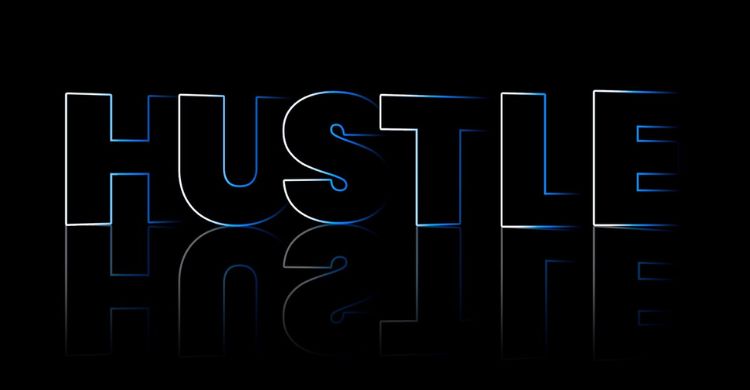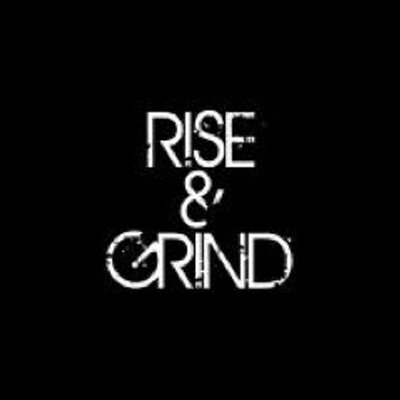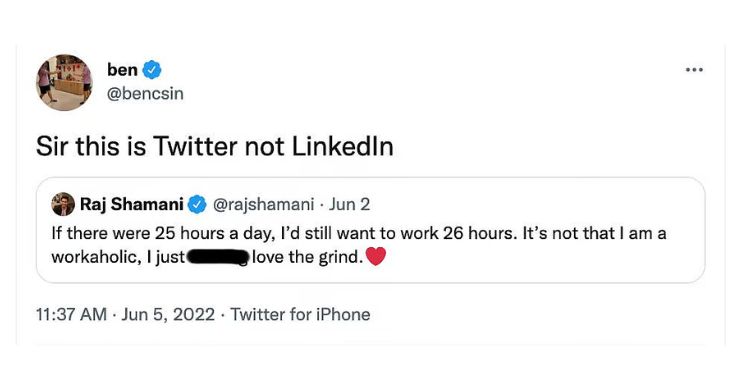You wake up to the sound of notifications, check your emails before brushing your teeth, and scroll through social media where everyone seems to be building something, achieving something, or “grinding” their way to success. The pressure sets in — again. If you’re not working, you’re expected to be learning a new skill. And if you’re resting, you feel guilty for it.
Sound familiar?
Welcome to hustle culture — where productivity is glorified, burnout is a badge of honor, and your worth feels tied to how much you can do in a day. You’ve been told that if you just keep pushing, keep striving, success will come.
But at what cost?
The truth is, this never-ending race to do more often leaves you feeling empty, anxious, and exhausted. Hustle culture isn’t empowering you — it’s draining you.
In this blog post, let’s slow down and explore why hustle culture is bad or why hustle culture is not worth it, how it’s silently sabotaging your well-being, and what you can do to reclaim your time, your energy, and your peace.
What Is Hustle Culture?
Hustle culture is the belief that you must constantly be working, grinding, and pushing yourself to the edge to be successful or worthy. It romanticizes overworking — making 16-hour workdays, skipped meals, and sacrificed weekends seem like the secret formula to greatness.
In hustle culture, rest feels like laziness. Taking breaks feels like slacking. You’re not just expected to work — you’re expected to always be doing something “productive.” If you’re not working, you should be networking, upskilling, side-hustling, or starting a new project.
This culture is everywhere — in startups, on social media, in corporate offices, and even in creative spaces. It feeds off comparison, glorifies burnout, and convinces you that unless you’re constantly chasing something, you’re falling behind.
At first glance, hustle culture looks ambitious. But beneath the surface, it’s built on fear — fear of failure, of not being enough, of being left behind. And that fear keeps you in a loop where you’re always running, but never arriving.

How Hustle Culture Became Trendy?
1. The Rise of Entrepreneurship and Startups
As the startup ecosystem boomed in the 2010s, stories of young founders working around the clock became symbols of success. Sacrificing sleep, skipping meals, and grinding endlessly were seen as necessary rites of passage.
The message was clear: if you’re not hustling, you’re not serious about success.
2. Social Media and Performance of Productivity
Platforms like Instagram, LinkedIn, and Twitter turned productivity into a performance. From early-morning routines to late-night grind sessions, people began showcasing their hustle online.
Hashtags like #riseandgrind, #nodaysoff, and #hustlehard became digital trophies, reinforcing the idea that being constantly busy is something to be proud of.

3. The Influence of Gig Economy and Remote Work
As freelancing and side gigs became more mainstream, so did the idea that you should always be working on something. With remote work blurring the lines between office and home, it became harder to switch off. N
ow, productivity is expected not just from 9 to 5 — but 24/7.
4. Hustle as a Lifestyle, Not Just a Trend
What began as motivation turned into a lifestyle — one where rest feels like guilt and self-worth is measured in output. Instead of working to live, hustle culture made us live to work. And the more we fed into it, the more it demanded from us.

Why Hustle Culture is Bad or Not Worth It?
While hustle culture may look glamorous from the outside, the reality beneath the surface is far from healthy. The constant pressure to do more, achieve faster, and always stay productive takes a toll on your mind, body, and relationships. Let’s break down the real reasons why hustle culture is not worth it.
1. Mental Health Burnout
One of the biggest disadvantages of hustle culture is the silent damage it does to your mental health. When you’re constantly pushing to meet unrealistic goals and comparing your progress to others, anxiety and self-doubt become your daily companions.
You feel guilty for taking breaks. Rest feels like laziness. Over time, this leads to emotional exhaustion, depression, and burnout.
Hustle culture teaches you that if you’re struggling, you’re not working hard enough. But the truth is — you’re human, not a machine.

2. Physical Health Decline
Another major reason why hustle culture is bad is the impact it has on your physical well-being.
Long hours, poor sleep, skipped meals, and high stress levels can result in real health problems. Chronic fatigue, high blood pressure, weakened immunity, and even heart disease are all linked to overworking.
The human body isn’t designed to be in a constant state of stress. When you treat your body like a machine, it will eventually crash.
3. Strained Relationships and Social Isolation
When hustle becomes your only priority, everything else takes a backseat — including your loved ones. Friends, family, and even your own sense of community often get neglected. You might find yourself missing important moments or emotionally disconnecting from the people who matter most.
This isolation doesn’t just impact others — it creates a deep sense of loneliness within you, making the hustle feel hollow in the end.
4. The Illusion of Success
Hustle culture glorifies output over meaning. It convinces you that the more tasks you complete or the longer you work, the more successful you are. But that’s a myth. Chasing endless goals without fulfillment leads to burnout, not brilliance.
True success is about balance, purpose, and peace — not how many hours you can grind in a day.
5. Ego-Driven Productivity
Many fall into the hustle trap to prove something — to society, their peers, or even themselves. It becomes an ego game: who can work harder, sleep less, or multitask more? But this need to validate your worth through constant productivity is emotionally draining and unsustainable.
When things slow down — and they eventually will — you might question your entire identity, because hustle became your only definition of value.
Productivity ≠ Overworking
One of the biggest lies hustle culture sells is that being productive means working non-stop. But here’s the truth: productivity is not the same as overworking. In fact, overworking leads to less output, poorer quality, and faster burnout.
The Myth of More Hours = More Success
We’ve been conditioned to believe that the more hours you put in, the more successful you’ll become. But numerous studies show that after a certain point — typically around 40–50 hours per week — your productivity actually declines. Beyond that, you’re not doing “deep work”; you’re just staying busy for the sake of looking productive.
Quality Over Quantity
True productivity is about working smart, not working endlessly. It’s about prioritizing tasks that matter, setting boundaries, and knowing when to rest. When you focus on quality over quantity, you produce better results — with less stress.
Overworking leads to mistakes, missed details, and shallow thinking. Real productivity means showing up with clarity, creativity, and purpose — not just exhaustion.
Rest Is Productive, Too
If you’re wondering why hustle culture is not worth it, this is it: it makes you feel guilty for resting, even though rest is essential to do your best work. Breaks, sleep, time off — they’re not unproductive. They are fuel for your mind and body to perform better.
Your brain needs downtime to recharge, process information, and spark new ideas. Without rest, you’re just grinding gears in a machine that’s wearing out fast.
Choose Effectiveness Over Busyness
Hustle culture glorifies being busy. But being busy doesn’t always mean being effective. You could work 12 hours a day and still not achieve what you could in 6 focused, intentional hours. The goal is not to do more, but to do better.
Remember: Overworking is not a badge of honor — it’s a warning sign. Productivity doesn’t require pain — it requires perspective.
How to Escape Hustle Culture?
Escaping hustle culture doesn’t mean you stop being ambitious — it means you stop sacrificing your health, peace, and joy at the altar of constant productivity. If you’re tired of feeling overwhelmed, emotionally drained, or guilty for taking a break, here are real steps to help you reclaim your time, energy, and sanity.
1. Start Being More Aware
Awareness is the first step to breaking any toxic cycle. Ask yourself:
- Am I constantly exhausted?
- Do I feel guilty when I rest?
- Is my self-worth tied to my productivity?
Recognizing that you’re caught in hustle culture is empowering — because once you see it, you can change it.
2. Prioritize Your Feelings Over Your To-Do List
Productivity is not just about checking tasks off — it’s about how those tasks make you feel. Each morning, instead of asking “What do I need to get done?” try asking, “What matters most to me today?”
It’s okay to take a slow day. It’s okay to pause. Your emotional well-being deserves to come first.
3. Plan Your Days With Balance
You don’t have to choose between work and rest — you can design your day to include both. Create intentional space for focus, but also schedule in time for rest, reflection, hobbies, or doing absolutely nothing. A sustainable routine respects your body and mind, not just your deadlines.
4. Give Your Mind a Break
Mindful pauses throughout the day help reset your energy and reduce stress. Step away from your screen. Take deep breaths. Go for a walk. Unplug.
You’re not a machine. You deserve to recharge — not just physically, but mentally and emotionally too.
5. Set Boundaries and Say “No”
This is a big one. Hustle culture thrives in environments with no boundaries. But you have the power to say:
- “I won’t check emails after 7 PM.”
- “Weekends are for rest.”
- “I’m not taking on more than I can handle.”
Saying “no” isn’t selfish — it’s self-care.
6. Redefine Success on Your Own Terms
Society may equate success with wealth, hustle, and constant output — but you get to choose what success looks like for you. Maybe it’s more time with loved ones. Maybe it’s peace of mind. Maybe it’s building a life that feels good instead of one that just looks good.
7. Disconnect to Reconnect
Social media fuels hustle culture. Take breaks from the endless scroll of “success stories” and “morning routines.” Instead, reconnect with your own rhythm. Silence the noise and listen to what you truly need.
Real Stories Showing Why Hustle Culture is Not Worth It
Some of the most successful people have consciously rejected the hustle mindset — and thrived by embracing balance, boundaries, and intentional living.
Below are a few powerful stories that prove why hustle culture is not worth it, and how success can come from doing less, not more.
1. Arianna Huffington – Redefining Success with Sleep and Wellness
Arianna Huffington, co-founder of The Huffington Post, once collapsed from exhaustion due to overworking. That moment became a turning point in her life. She went on to write The Sleep Revolution and founded Thrive Global — a company built around the idea that productivity and well-being must go hand in hand.
Her success is a loud and clear message: sleep is not the enemy of success — it’s the foundation of it.
2. Cal Newport – The Power of Deep Work, Not Busy Work
Computer science professor and author of Deep Work, Cal Newport challenges the hustle myth by promoting focused, distraction-free work over long, chaotic hours. He believes in working with full intensity for fewer hours and then disconnecting completely.
His philosophy? You don’t need to hustle harder. You need to work smarter and protect your time.
3. Jay Shetty – From Monk Life to Global Influence
Jay Shetty, former monk turned bestselling author and life coach, doesn’t promote hustle. He promotes purpose. His path to success involved slowing down, living simply, and connecting deeply with his inner self — far from the chaos of hustle culture.
He teaches that true success comes not from doing everything but from doing what truly matters.
4. The “Slowpreneur” Movement – Building Businesses with Balance
Thousands of entrepreneurs are now embracing the “slowpreneur” mindset — choosing sustainability, creativity, and mental well-being over viral growth and constant hustle. These individuals intentionally grow their businesses while setting boundaries, taking weekends off, and prioritizing personal fulfillment.
They are living proof that you don’t need to burn out to build something beautiful.
FAQs About Hustle Culture
For most people, hustle culture is not worth it. While it may deliver short-term results, it often leads to burnout, poor health, and unhappiness in the long run.
Hustle culture is bad because it promotes unrealistic standards, neglects mental health, encourages overwork, and disconnects people from personal fulfillment and joy.
While hustle culture may motivate some to take action, its downsides — like chronic stress and burnout — far outweigh its benefits. It’s not a sustainable or healthy approach to success.
Not entirely, but it is being challenged. Post-pandemic, many people are embracing slow living, balance, and mental well-being — pushing back against the glorification of hustle.
Yes, hustle culture still exists, especially on social media and in startup circles. However, awareness around its toxicity is growing.
It depends on how it’s practiced. While motivation and ambition are good, hustle culture taken to the extreme is harmful. So, it leans more towards being bad.
Yes, hustle culture is toxic when it encourages people to overwork, ignore their health, and tie their self-worth to productivity alone.
It normalizes burnout, glorifies being busy, discourages rest, and pressures individuals to constantly achieve more — often at the cost of health and happiness.
Negative impacts range from emotional exhaustion and chronic stress to loss of creativity, sleep disorders, and a decline in overall well-being.
Absolutely. Hustle culture is a leading cause of burnout as it encourages working beyond healthy limits without adequate rest or recovery.
Yes. People caught in hustle culture often neglect family, friends, and meaningful connections, leading to isolation and emotional disconnection.
Yes. Long hours, poor sleep, high stress, and neglecting self-care can lead to heart issues, high blood pressure, and immune problems.
Yes. Constant overworking leads to mental fatigue, which reduces focus, creativity, and the quality of output over time.
Many are driven by fear of failure, comparison with peers, societal pressure, or the desire to prove themselves worthy or successful.
The opposite is intentional living or slow living, where people focus on balance, mindfulness, and doing meaningful work at a sustainable pace.
Absolutely. Success can mean freedom, peace of mind, meaningful work, or simply a life you enjoy — not just money or status.
If you feel constantly tired, anxious, guilty for resting, or disconnected from joy, it’s a sign hustle culture is taking a toll on you.



